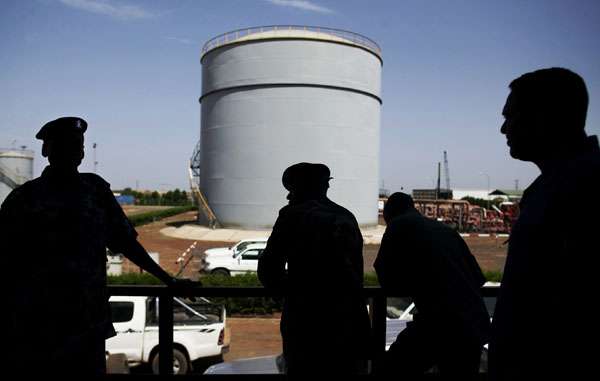
ADDIS ABABA, Ethiopia — A new round of post-independence talks between Sudan and South Sudan began today in Addis Ababa and are slated to last until next Monday, January 24. Front and center in this round of talks is the issue of Khartoum and Juba’s undetermined oil relationship, and the size of the transit fee—measured in dollars per barrel of oil—that South Sudan should pay to Khartoum for the use of pipelines that cross Sudan’s territory.
Representatives of the South Sudan and Sudan delegations, members of the facilitating African Union High-Level Implementation Panel, and notably, emissaries of foreign oil companies involved in the Sudan-South Sudan oil industry were seen milling around the Sheraton in the Ethiopian capital in between meetings.
Tensions related to Khartoum’s detainment and confiscation of South Sudan oil hung over the first day of talks. Documents issued by the South Sudan delegation at a press conference today suggest that foreign oil companies, under “duress” by Sudan security forces, cooperated with the illegal lifting of 605,784 barrels of oil onto a Sudan-chartered vessel. The documents also indicated that on the day before talks resumed, Khartoum issued further instructions to foreign oil companies to load another 750,000 barrels of oil onto another Sudan-chartered vessel.
In the last round of negotiations, an SPLM proposal to give economically-troubled Khartoum financial assistance, in exchange for Khartoum’s recognition that disputed territories along the border belong to the South, was set aside to focus on the issue of oil. As of the last round, the positions of each party on what transit fee would be appropriate remained far apart. For a settlement to ultimately be reached, the two parties will have to bring other unresolved issues back into the conversation, namely the disputed territory of Abyei, as well as a number of other border areas claimed by both sides.
In an attempt to shed light on what has occurred in the negotiations to date, as well as to inform future discussions concerning the process, and the AUHIP’s contribution to it, Enough released today a timeline for the negotiation process. The timeline provides an overview of the negotiations to date and reflects the various changes to the process’ structure.
In the coming week, Enough will be covering this round of talks and providing regular updates from Addis Ababa. Stay tuned.
Photo: Soldiers guard an oil facility (AP)

